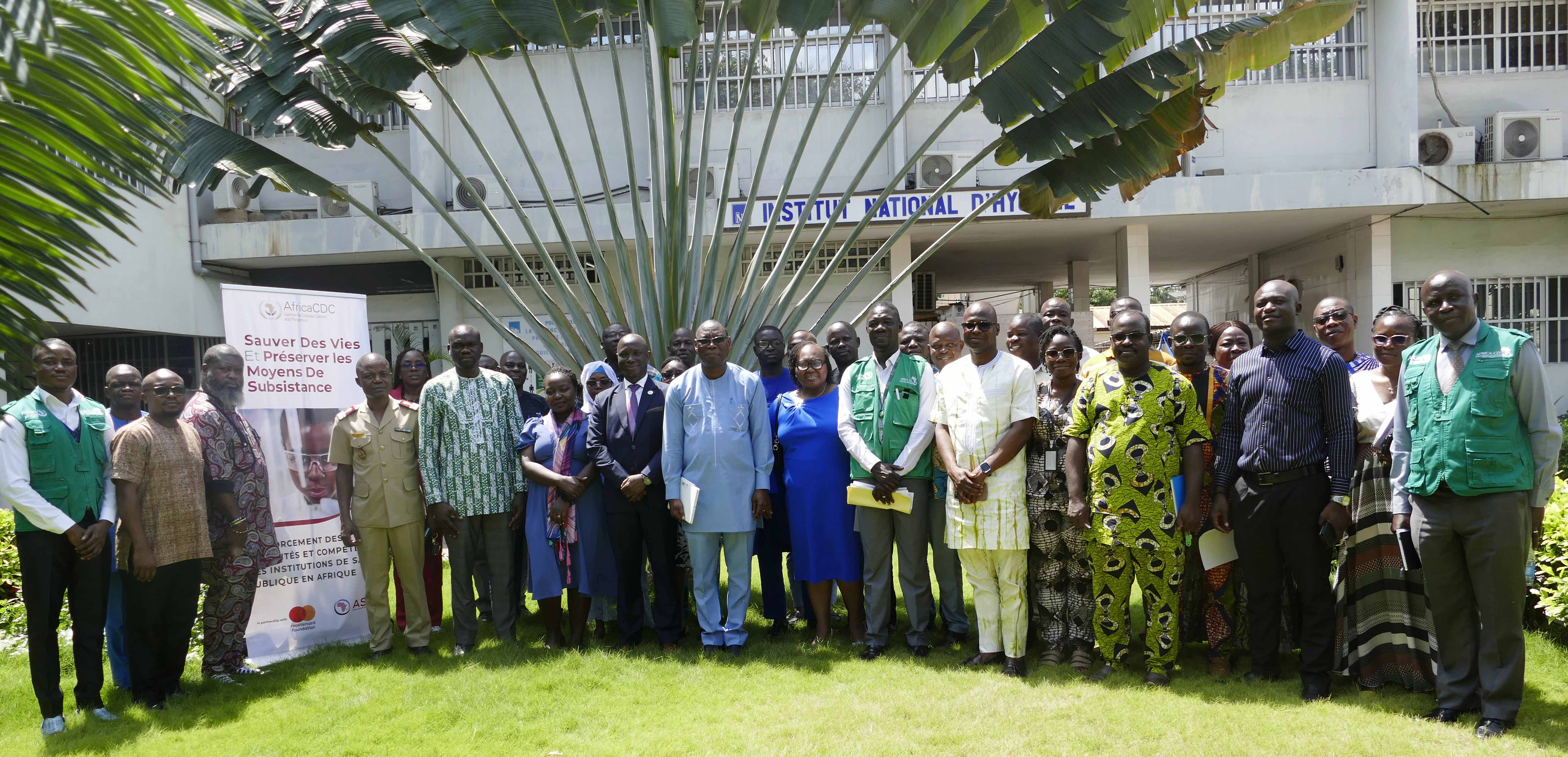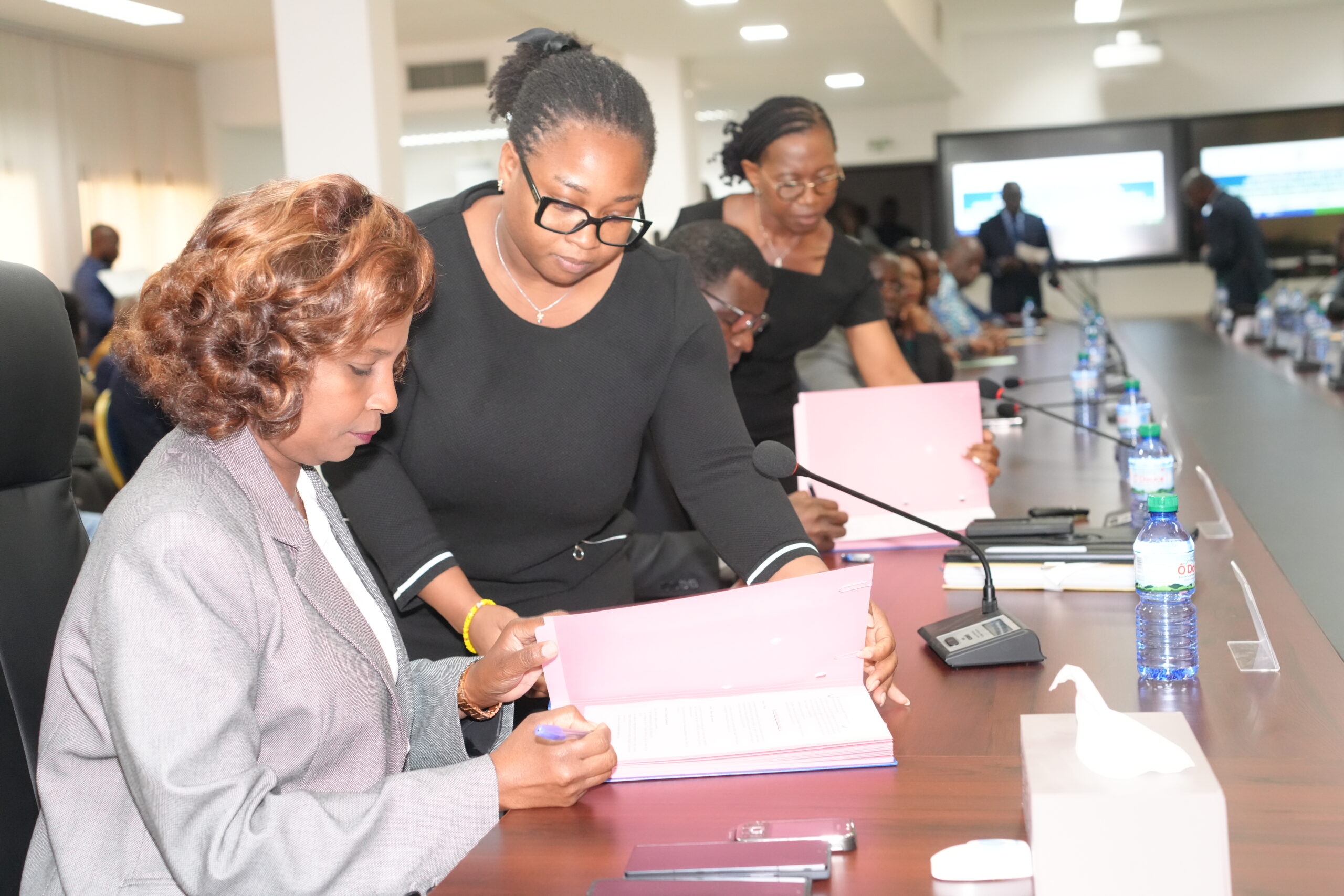International Congress of Epidemiology and Public Health, 13-16 March 2023 in Lomé/ Interview with Prof Didier Koumavi Ekouevi, President of the organisation
- Posted on 03/03/2023 11:41
- Film
- By abelozih@sante-education.tg

Extract from the article: Le Togo abrite du 13 au 16 mars 2023 un Congrès international d’épidémiologie et de Santé publique qui aura lieu à Lomé. Cet évènement est organisé par le Centre de Formation et de Recherche en Santé Publique en collaboration avec le Département de S
« It will be a real melting pot of cultures and scientific approaches which promises rich and beneficial exchanges for the fight against epidemics and for the strengthening of our health systems in Africa »
Togo
is hosting an International Congress of Epidemiology and Public Health from 13
to 16 March 2023 in Lomé. This event is organised by the Centre for Training
and Research in Public Health in collaboration with the Department of Public
Health of the University of Lomé and will allow the association of
French-speaking epidemiologists, field epidemiologists and French-speaking
researchers to share their research experience and the results of their work.
According to the leaders of the Association des Epidémiologistes de Langue
Française (ADELF) and the Association pour le développement de l'épidémiologie
de terrain (EPITER), this upcoming congress is "the largest francophone
scientific event in the field of epidemiology and public health". These
associations ADELF and EPITER bring together more than 500 epidemiologists. Why
this conference and what are its objectives? How will this conference impact on
epidemiology and public health actions in Togo? Professor Didier Koumavi
Ekouevi, the organising president, answers in this interview with
Santé-Education.
Santé-Education:
The International Congress of Epidemiology and Public Health will take place in
Lomé from 13 to 15 March. Why this conference and what are its objectives?
Prof
Didier Koumavi Ekouevi: The ADELF-EPITER congress is a
French-speaking scientific event in the field of epidemiology and public health
that brings together every year, public health actors but also scientists from
various fields and countries. The previous congress took place in Laval, Canada
in 2022. This congress is therefore part of the annual activities of the
association of French-speaking epidemiologists, but it is also part of a health
context marked by the emergence of new epidemics with a significant impact on
the functioning of our countries. It seemed appropriate to come together to
share experiences in terms of response to these diseases. It is for this reason
that the theme chosen for this year's congress is "Public Health in the
face of emerging and re-emerging diseases". This theme is also part of a
context marked by the increasingly frequent resurgence of diseases with epidemic
potential, in particular the COVID-19 pandemic, to which the world has
responded in an unprecedented manner and against which efforts are continuing.
The context is also marked by an outbreak of viral haemorrhagic fever (VHF) in
Uganda, and an outbreak of Marburg virus in Equatorial Guinea and Lassa fever
in Ghana. Also, the World Health Organization's African region has recorded
more than 1800 major public health threats between 2001 and 2022. The
ADELF-EPITER Congress is therefore an excellent opportunity to prepare for
these threats and to define sustainable and efficient strategies to address
them. This congress will also be an opportunity for the continent to
demonstrate the development of the discipline of Public Health and its capacity
to face these multiple burdens, both in terms of research and training.
The
theme of this conference is: public health and emerging and re-emerging
diseases. What are these diseases and their impact on health systems and
populations today?
According
to the World Health Organisation, these are diseases that appear in a
population for the first time (emerging), or that probably existed before and
are experiencing a sudden increase in terms of new cases or geographical
distribution (re-emerging). Environmental changes, human and animal
demographics, evolution of pathogens and changes in animal husbandry practices
are factors that cause these diseases. Emerging diseases include Covid-19 and
coronavirus diseases in general (MERS and SARS), Ebola virus disease, Rift
Valley fever (virus), Chikungunya, Marburg virus disease. More simply, a
disease caused by a previously unknown infectious agent can be considered
emerging. Re-emerging diseases are those that appeared once, disappeared for a
period of time, and then reappeared. These diseases have economic implications
that go far beyond their direct health costs. Their occurrence can lead to a
slowdown in trade and travel. In order to limit the threat of these diseases
internationally, there is a need to ensure that surveillance and response are
well coordinated at the global level.
Who
will be the participants and what will be done concretely during these 4 days
of conferences?
It
will be a two-day pre-congress, followed by a two-day congress. The
pre-congress will consist of two days of training on 13 and 14 March 2023,
during which more than 200 participants from the younger generation of
researchers and health professionals will be introduced to scientific medical
writing and biostatistics. These courses will be given by teachers from the
University of Lomé (Togo), the University of Bordeaux (France) and the
Karolinska Institute of Stockholm (Sweden).
As
for the congress itself, which will take place on 15 and 16 March 2023 at the
Hotel du 2 février, the participants are professionals in the field of health
in general and more specifically in public health-epidemiology, a speciality
that deals with disease prevention, health promotion and the fight against
epidemics. There will also be policy makers.
For
the health actors, they come from universities (students and professors),
networks and research agencies from around the world. Nearly 400
French-speaking researchers from 21 countries around the world are expected in
Lomé for this conference. It will be a real melting pot of cultures and
scientific approaches which promises rich and beneficial exchanges for the
fight against epidemics and for the strengthening of our health systems in
Africa. More succinctly, the congress will be punctuated by a series of 40 oral
communications and 200 poster communications in the field of communicable and
non-communicable diseases. A major symposium led by the French National Agency
for Research on AIDS, Viral Hepatitis and Emerging Infectious Diseases
(ANRS|MIE) will also be organised. Finally, on the theme of strengthening the
health system, a round table on Universal Health Coverage is planned, which
will be moderated by experts from the World Health Organisation and policy
makers. This round table is organised in partnership with the SUNU Group and
the WHO country office.
How
will this congress impact on epidemiology and public health actions in Togo?
Public
health in Togo has made significant progress in recent years due to the various
health scourges that Togo has had to face. However, its role is still little
understood by health professionals and the general population. This congress
will therefore allow health actors, students and the general population to discover
or rediscover this discipline. This congress will also allow participants and
health actors from Togo to share their experience in the management of emerging
diseases and to benefit from the experience of other countries in order to
create a more resilient health system. Overall, this conference will have an
impact on epidemiology and public health actions in Togo in several ways.
Firstly, the holding of the ADELF-EPITER conference in our country will raise
the level of knowledge of young Togolese researchers in the field of public
health and epidemiology. These young researchers of our country, who constitute
a force of proposal will thus be able in the future to obtain scientific
elements to be submitted to the policies for an improvement of our health
system and the health of the populations. Secondly, this conference will also
have an impact on public health training in our country. Indeed, the presence
at this conference of eminent public health teachers from renowned universities
will be an opportunity to strengthen North-South and South-South training
partnerships. Thirdly, it should also be noted that a large round table will be
organised on Universal Health Coverage, a guarantee of equitable access to
health services for the population, which is a priority for the Togolese
government. The Universal Health Coverage aims to allow all Togolese,
regardless of their location, to have access to quality health care. From this
round table and all other discussions, concrete solutions and proposals will emerge
that can be submitted to our government to support the efforts already made.
Finally, this congress is an ideal opportunity for our country to show
leadership and the involvement of the highest authorities in the field of
epidemiology, public health and the fight against diseases in general.
Interview
by Gadiel TSONYADZI




